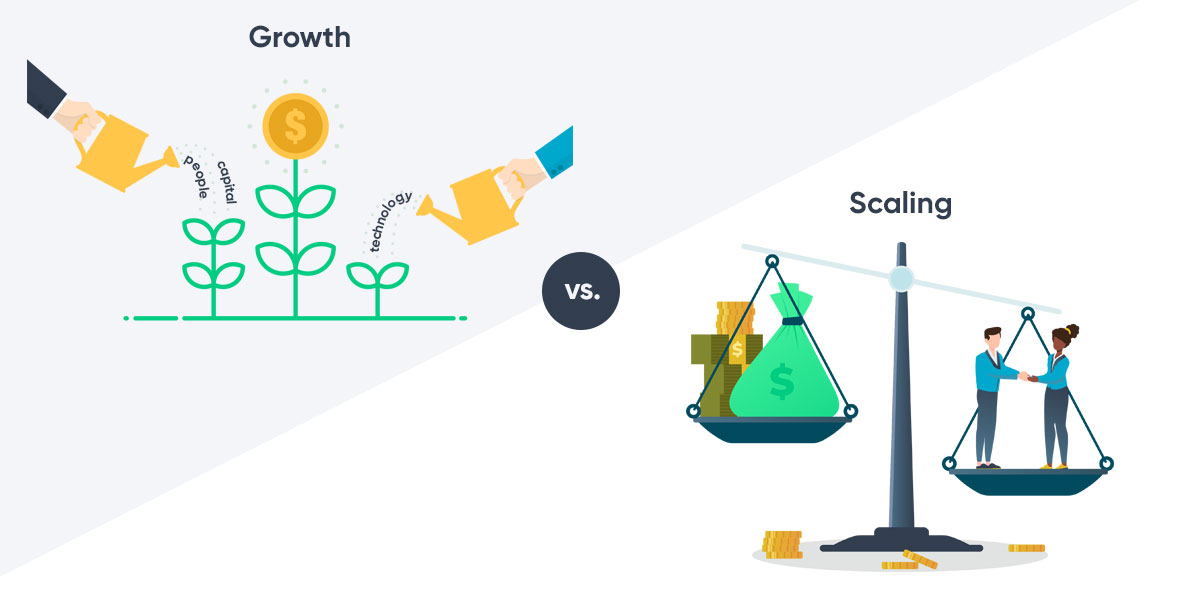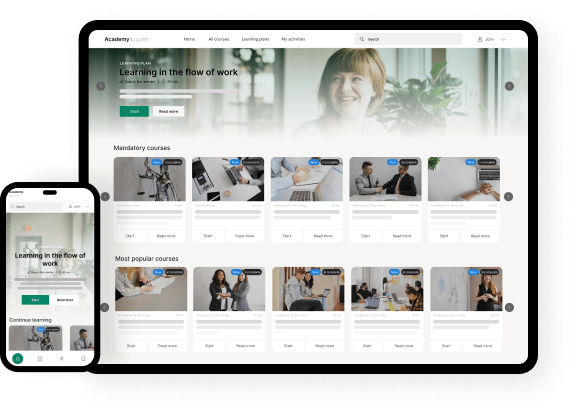If we cannot judge a book by its cover, can we judge a business by its growth?
It’s an intriguing question to ask, since conventional wisdom says that the bigger a business gets, the better it will perform.
Yet, that’s not the case with all companies — some just get bigger and nothing more.
Growth vs. Scaling
For a long time, the modern business world has been strongly fixated on growth and growth rates.
Successful companies are often viewed as those who manage to grow their enterprise. That growth is either in the form of increased revenue, number of employees, locations and offices, or customers.
To sustain constant growth like this, however, takes a lot of resources.
In contrast, the newer generations focus largely on scalability and exponential growth.
Although many use ”growth” and “scalability” as if they mean the same thing, they don’t.
Growth is when you’re adding new resources (e.g., capital, people, or technology), and your revenue increases as a result. In contrast, scaling is when your revenue increases without a significant expansion of resources.

Let’s dig a bit deeper into what sets these two conflicting topics apart and why knowing the difference is important for your business.
What’s the difference?
Let’s say you run a service-based business.
When you set out to grow your business and its revenue, you must add more clients, which results in you having to hire more people and invest in more tools to catch up on the expanding workload you’re creating. Essentially, this means your revenue rises at the same rate as your expenses. Your losses and gains can even level out, making your company’s growth less sustainable.
Instead, if you scale your business, you engage in processes that can be done en masse without putting in the extra effort.
This, of course, is just the technical definition. For a more in-depth understanding, consider these key differences between growing and scaling a business:
Focus
Many entrepreneurs rush the growth process. Some only focus on getting bigger, not better.
However, companies that scale often improve their product and services to cope and perform better under an increased or expanding workload or scope. This not only enhances the customer experience but also often, creates a better working environment for their employees.
Most times, the early years of developing their business are dedicated to listening to client feedback, finding and addressing issues, and optimizing their processes.
Unlike when you grow, scaling allows you to create a service or product that keeps validating its price point. That is because your concentration is on quality, not on quantity.
Objectives
The thought of rapid growth can be alluring.
Thus, businesses often tend to pay attention only to vanity metrics, the measures that make them look good to others.
Growing then leads to inflated customer acquisition budgets and even higher churn rates.
That isn’t the case when your objective is to scale your business.
When scaling, customer lifetime value is often greater than or equal to twice the customer acquisition costs.
In other words, a big portion of your money, time, and energy isn’t spent on excessive marketing stunts that only bring little to no value.
When you scale your business, your main objective is to target high-value clients or people you can build strong relationships with.
In fact, customer loyalty can be your best asset when you want to scale your business and thrive in a world of ever-changing consumer preferences.
You must think of your loyal customers as your brand advocates, who can vouch for your business and spread the good word to the world. It’s free and it requires less effort from your end.
Strategy
While some businesses find it to be an uphill battle, everyone in essence has growth potential. Of course, there will always be those better positioned than others.
Let’s return to the professional service company example.
Growing this business will involve hiring more people or investing in new equipment to serve more clients. But increasing your revenue by adding more resources with a corresponding surge in costs can, in fact, stagnate your growth.
For your company to scale sustainably, it’s necessary to employ a strategy that hinges on efficiency and replication.
For a service company, transforming their intangible offering into a tangible product is in many cases the best option.
Productizing a service involves turning one’s service into a product that can be continuously duplicated and sold.
A tangible product that is easily reproduced and even easier marketable opens endless opportunities for scaling.
Why scaling is a lucrative option
Consider a brick-and-mortar training company.
Gone are the days when training programs such as compliance and onboarding were dependent on printed manuals and human facilitators.
Learning needs have also changed, so as learners’ preferences. Face-to-face training sessions might no longer be an option for every organization – especially not if they need on-demand training on a large scale.
With a productized service, however, a traditional expert business can provide a much more cost-effective offering for these organizations. When the training company turns their learning courses into a standard or packaged product that can be sold through an online academy like ours, they get a repeatable and thus scalable business model.
The smart thing about our academy is that you can transform any analog learning materials into digital content and organize it within your own customized platform.
Your customers can access this platform any time of day, from any electronic device, and from any location. All they need is Wi-Fi.
This not only saves you a ton of resources. It also saves your customers time and money.
To put it simply, our academy lets you ramp up your efforts.
An automated business model like this helps you generate consistent revenue growth without drastically increasing your operational expenses. That means growing without hurting other aspects of your business.


